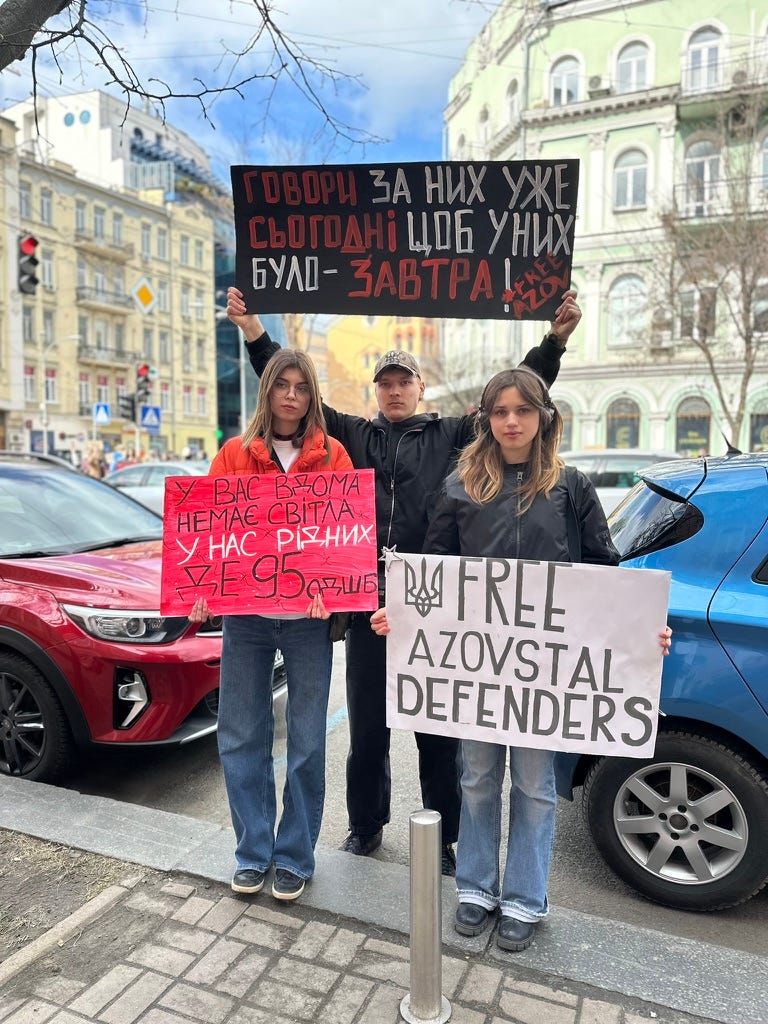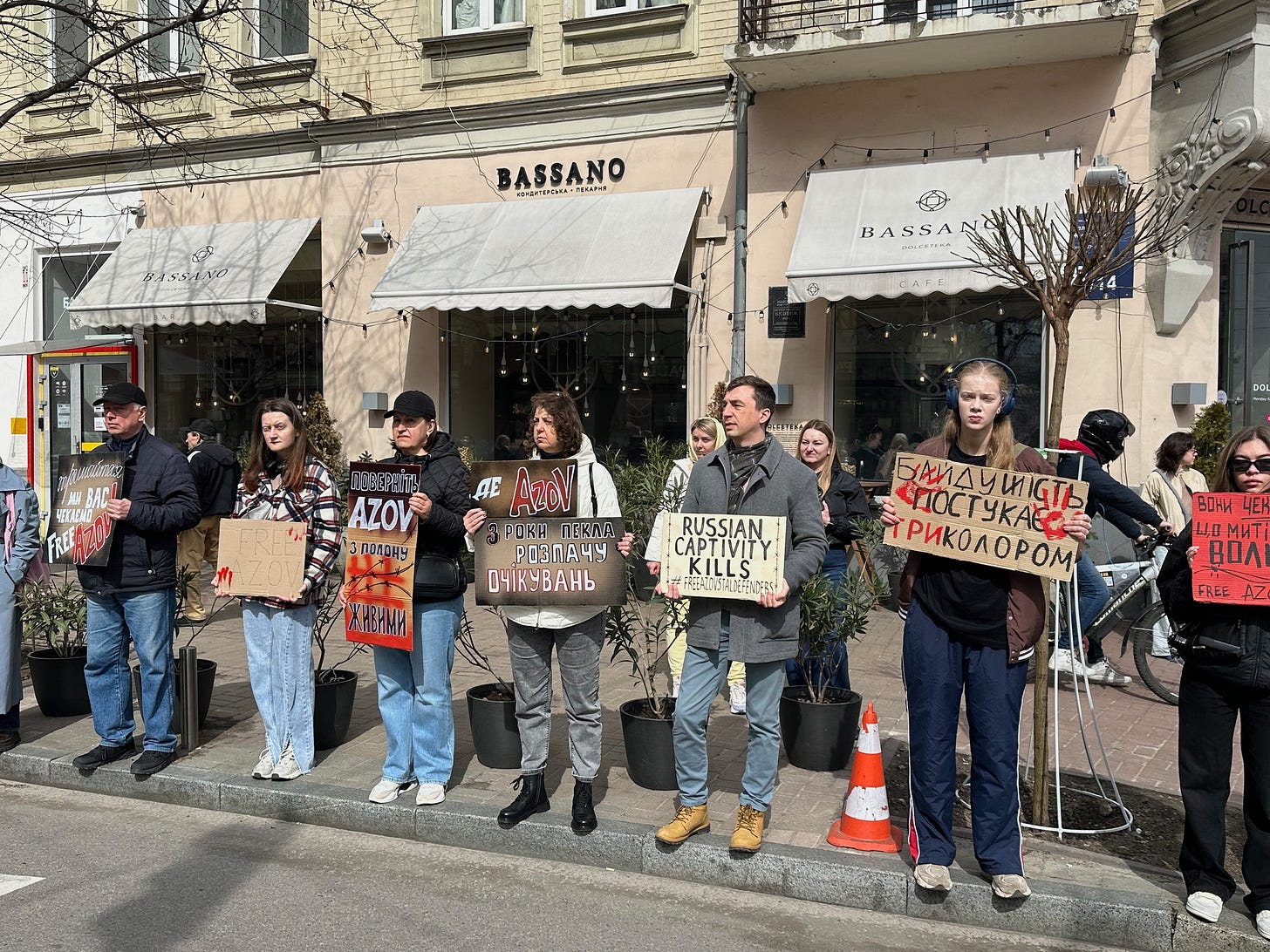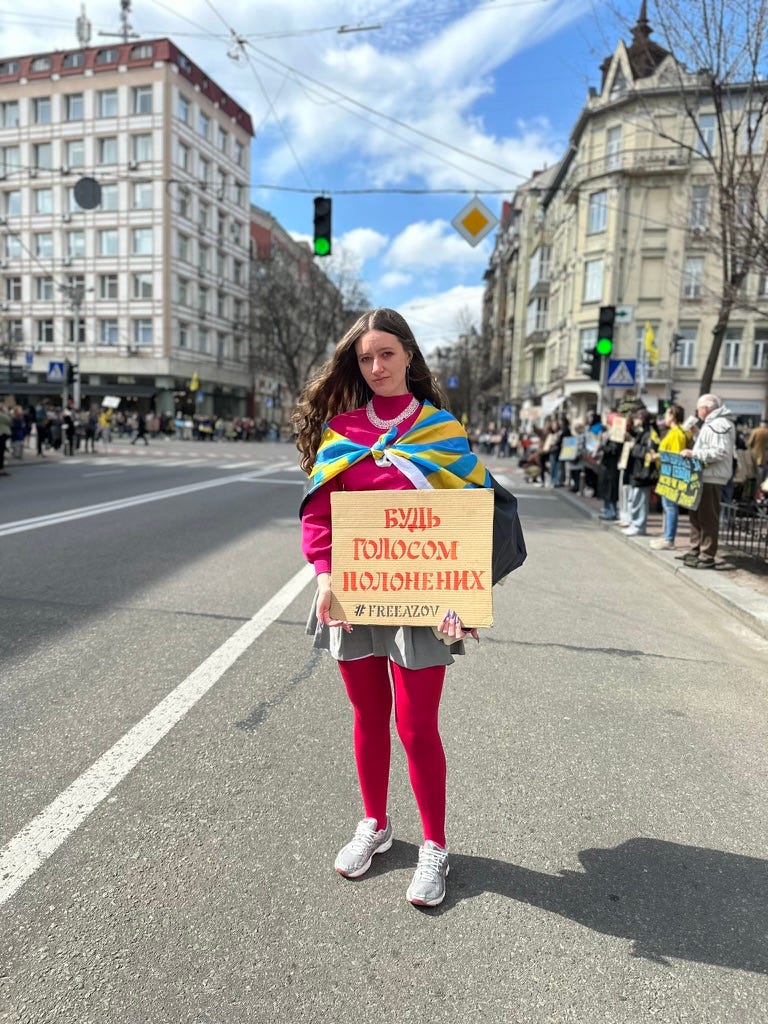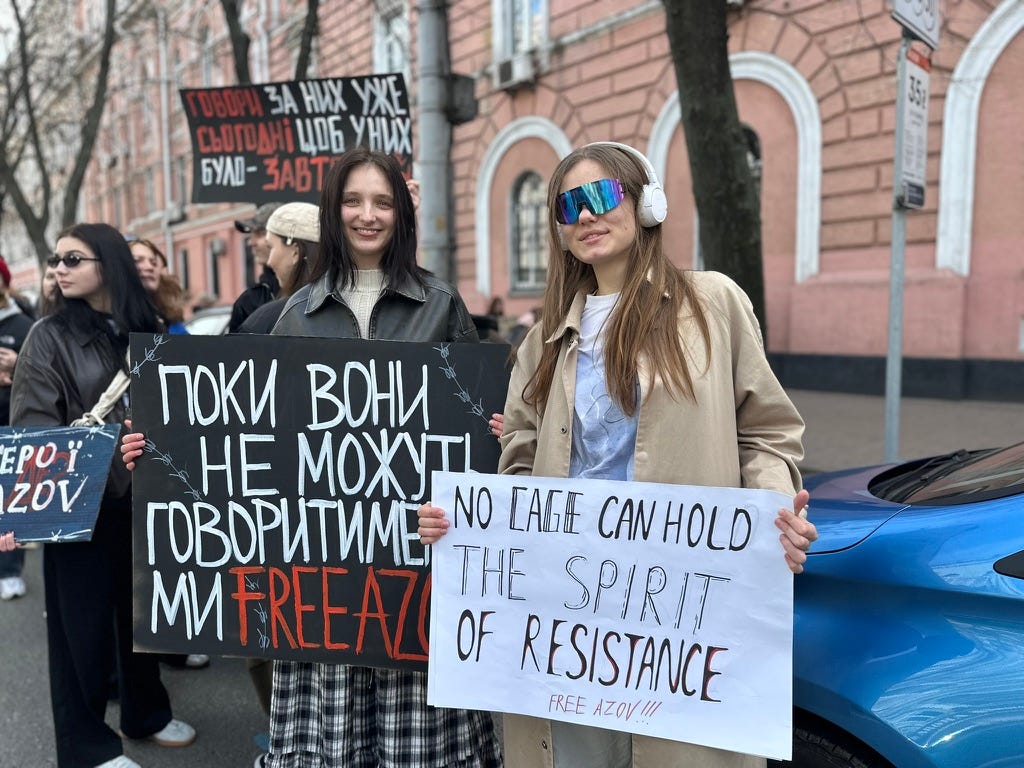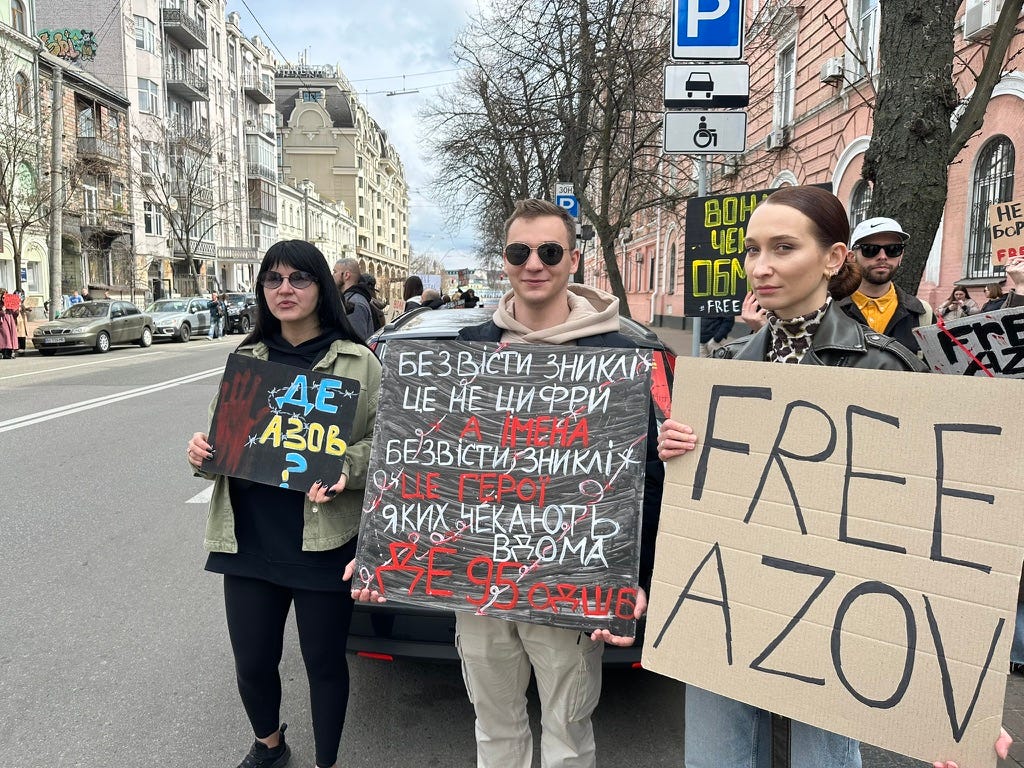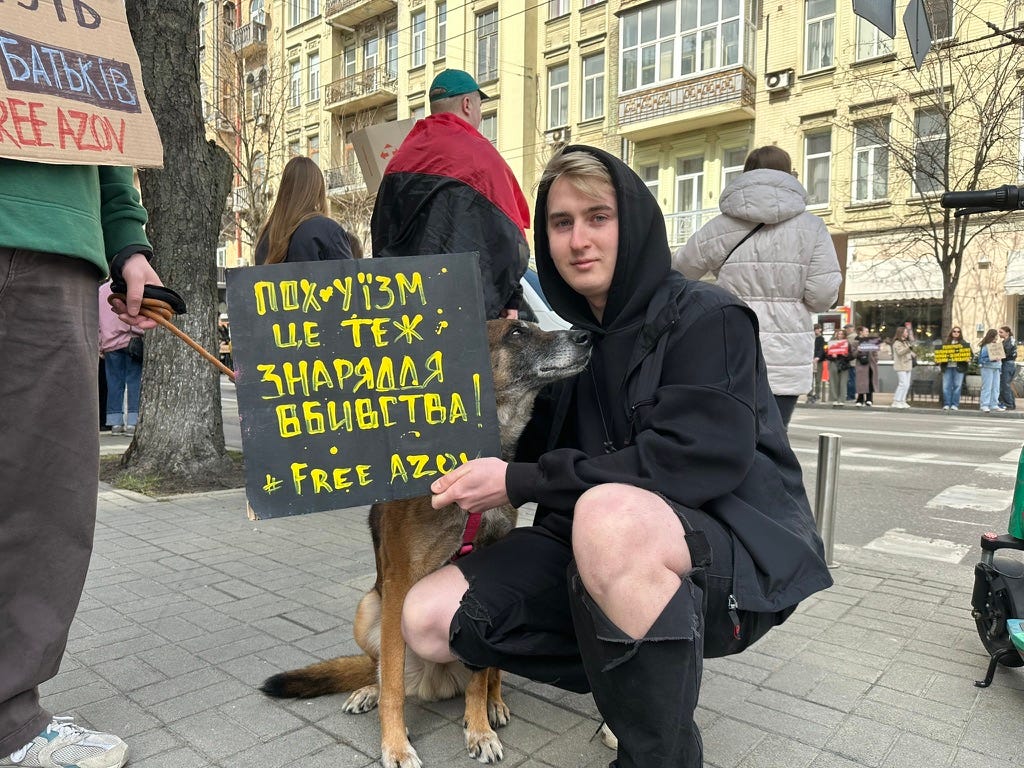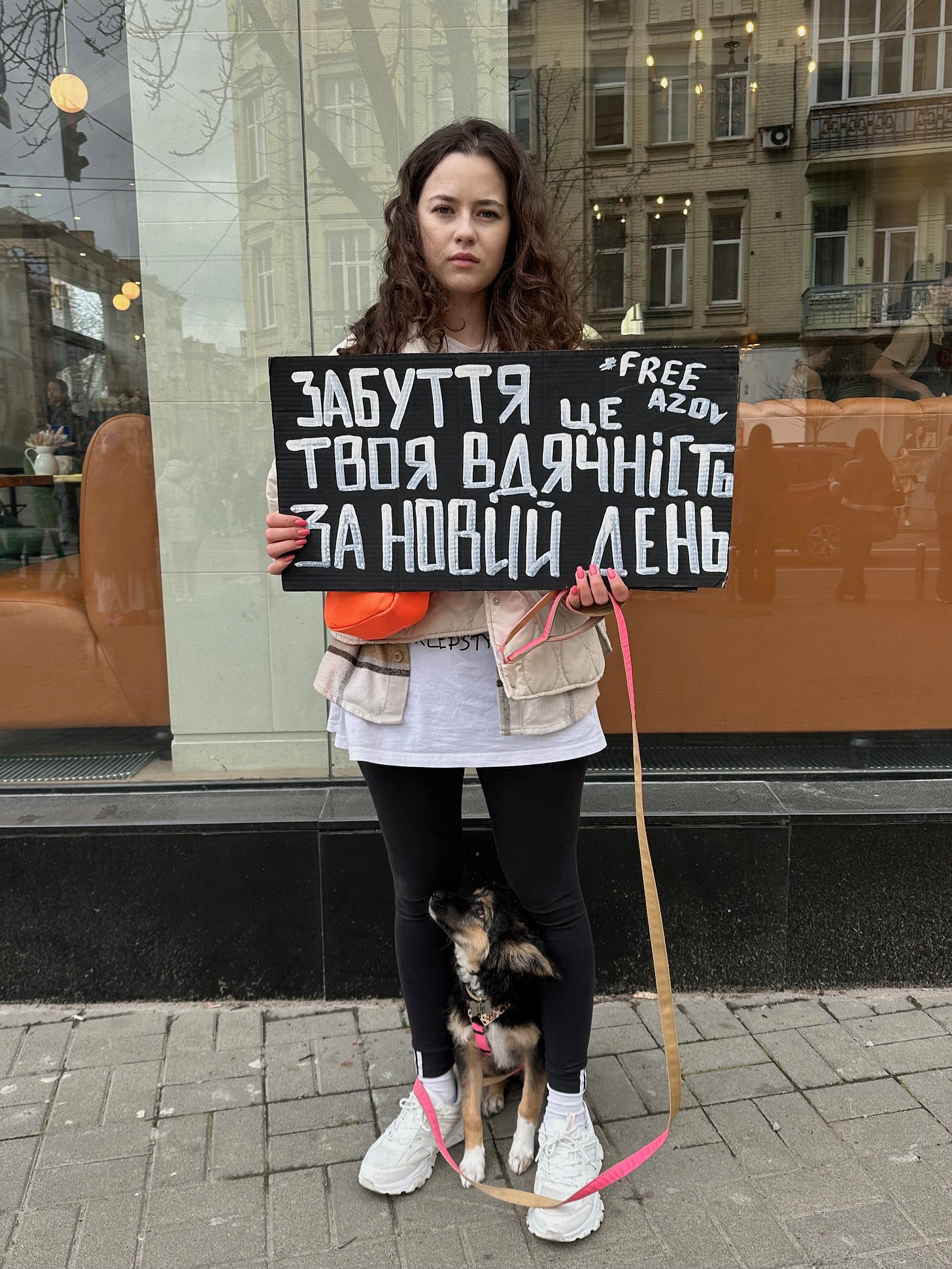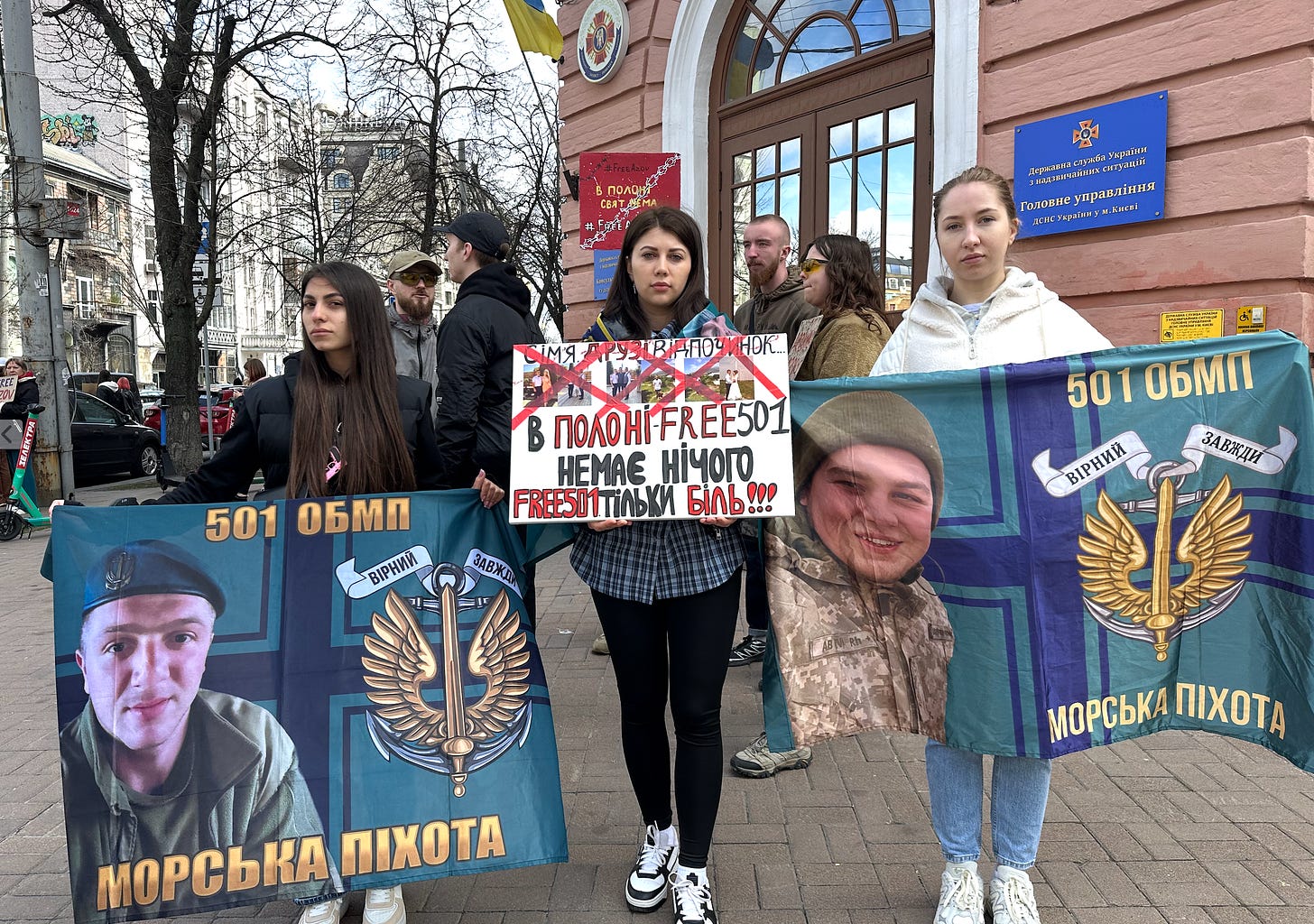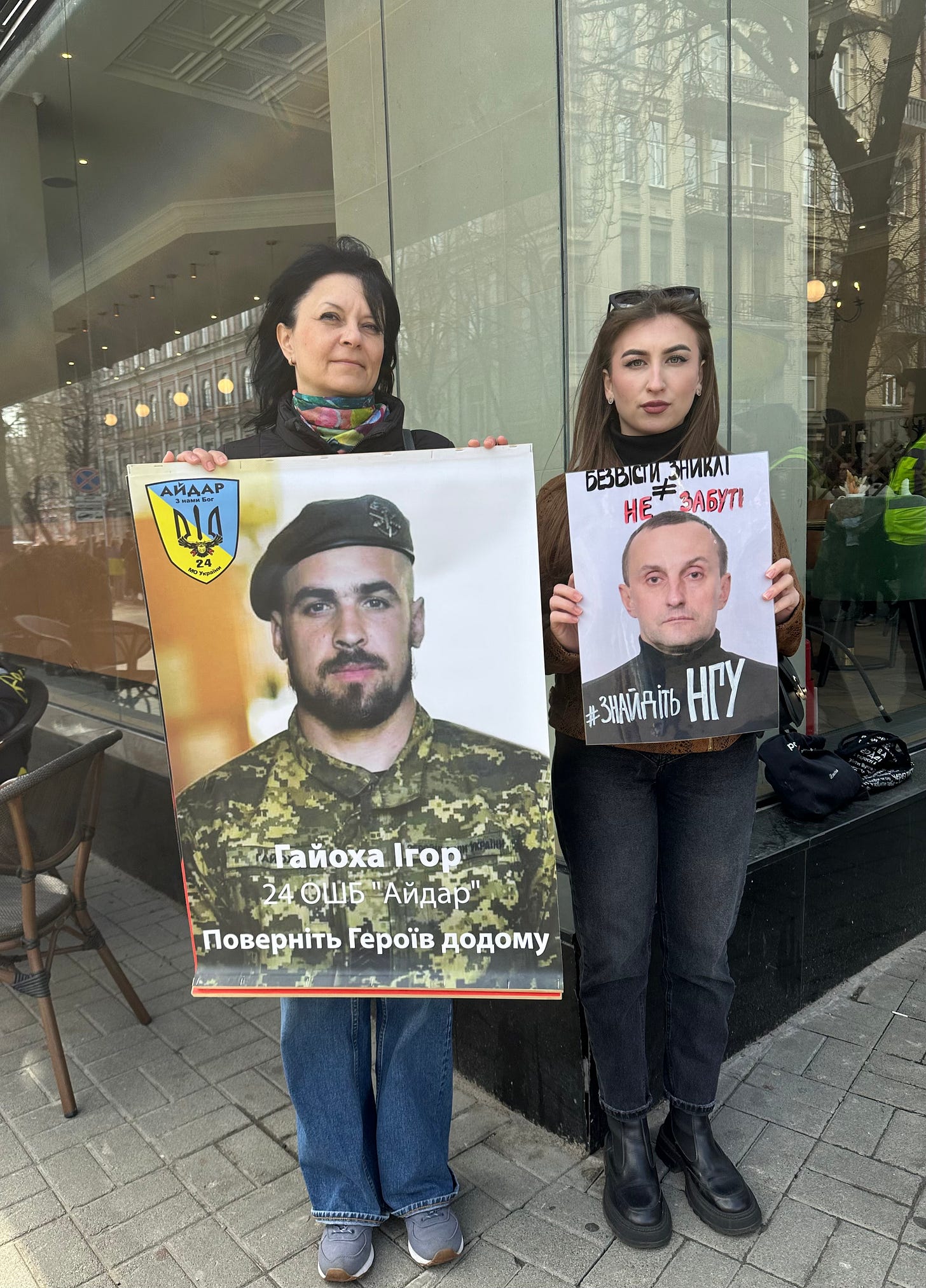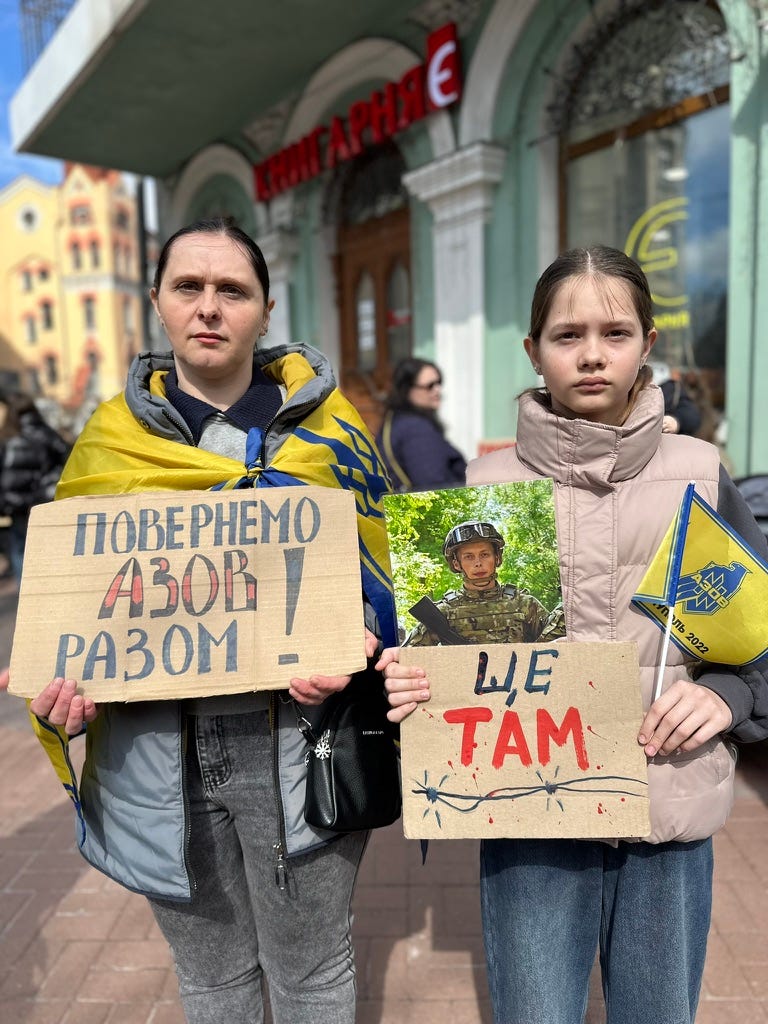"We will not forget them"
Every week hundreds of Ukrainians protest in central Kyiv demanding the release of Ukrainian prisoners of war held in inhumane conditions in Russian jails
Pictured: Ukrainian protestors Nastya, Yegor, and Katya in central Kyiv
Yegor is only 18 but speaks with a tired maturity that belies his youth. He spent the first two years of the full-scale invasion in Germany, but returned when he became an adult. I meet him at the regular Sunday ‘Free Azov’ protest where he tells me his reason for returning. “I’m a Ukrainian patriot”, he explains. “I wanted to contribute to my country. Even if it was just working and paying taxes.”
The crowd here is largely made up of young people; the war has forced Yegor’s generation to grow up fast. He is already serving part time in a Ukrainian military volunteer unit, and is considering signing a contract with the regular military. “It means that if I die, my parents would get a payment from the government,” he says matter of factly.
Yegor is one of the hundreds of protestors who line the streets of the capital every Sunday. The protest movement demanding the release of Ukrainian prisoners of war held in inhumane conditions by Russia, particularly the defenders of the “Azovstal” steel plant, the last bastion of Ukrainian defiance during the siege of Mariupol, who have been in captivity since May 2022. The protest movement started almost immediately. “Free Azov” is now a ubiquitous slogan, seen across Ukraine.
The protests are partly designed to pressure the Ukrainian government into doing more to return the Azovstal prisoners, Liza, another demonstrator tells me, and partly designed to generate international awareness of the plight of Ukrainians in Russian captivity. Ukrainians in Russian gulags are routinely subjected to torture, arbitrary punishment, and severe sexual assault. They are also routinely starved; Ukrainian prisoners returned after prisoner exchanges are invariably shadows of their former selves; their skeletal frames and sunken faces testimony to the deprivations suffered in Russian captivity.
Many of the protestors here have family members currently in Russian captivity. Posters and flags bear the names and photographs of their relatives, their unit names, and their dates of capture. Wives hold pictures of their husbands, mothers hold pictures of their sons, children hold pictures of their fathers. “The missing are not forgotten,” one poster reads. Neither are the dead; some placards feature images of relatives who have been killed in action.
The protests will continue until all Ukrainians in Russian captivity are returned home, numerous attendees told me. “We will bring all our people back. And we will win this war.”

